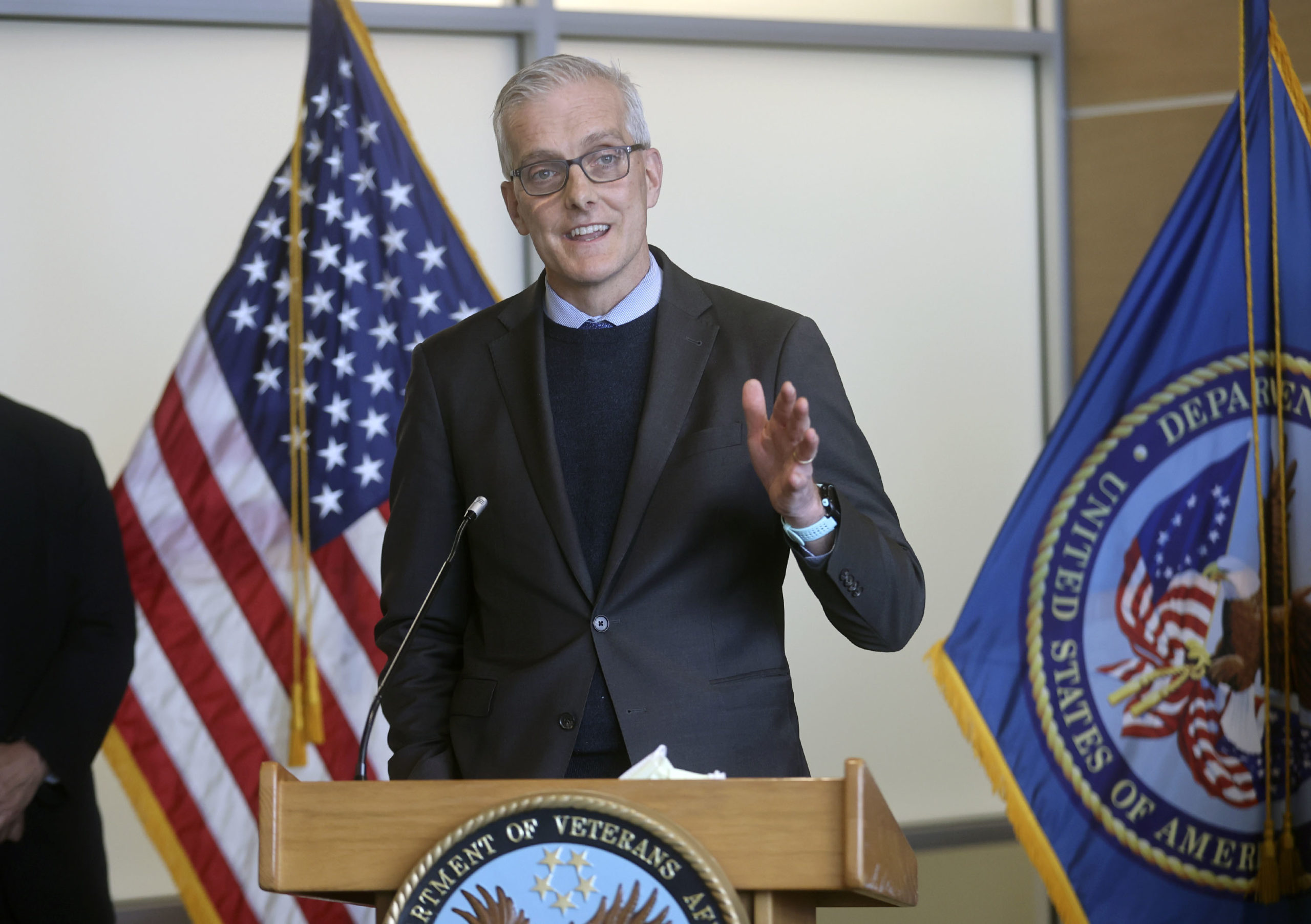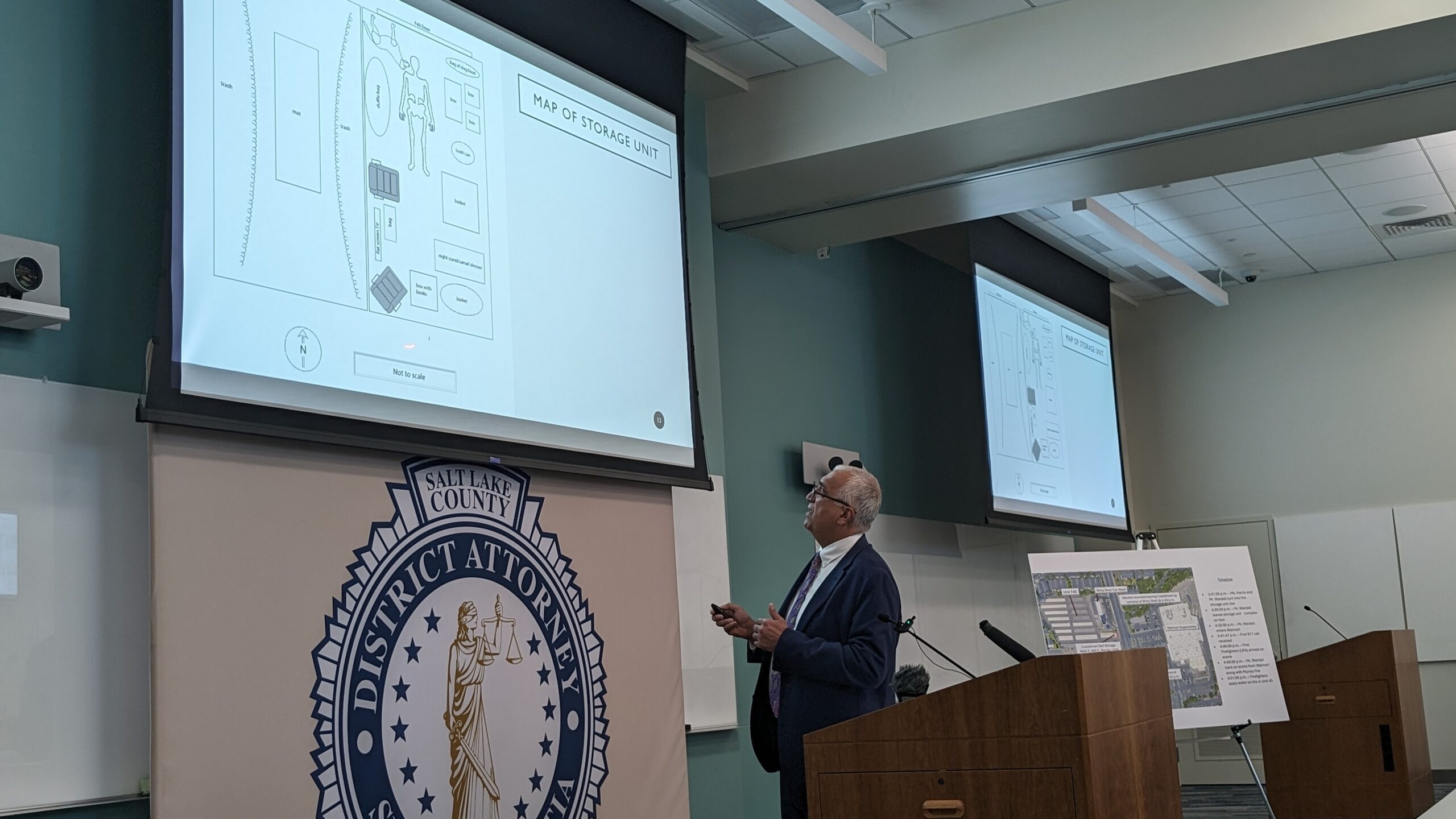VA Secretary says Salt Lake City working to ease veteran homelessness
Feb 23, 2022, 7:38 PM | Updated: Feb 24, 2022, 5:25 pm

Denis McDonough, secretary of veterans affairs, speaks during a press conference at the Salt Lake VA Health Care System in Salt Lake City on Wednesday, Feb. 23, 2022. (Kristin Murphy/Deseret News)
(Kristin Murphy/Deseret News)
SALT LAKE CITY — Keeping a sharp focus on Utah’s homeless veteran problem. The president’s top Veterans Affairs official says Salt Lake City is struggling to help homeless veterans, like other cities are, but he believes there is enough funding and effective strategies to help people in need.
Secretary of the Department of Veterans Affairs Denis McDonough addressed several different topics while visiting the Salt Lake VA Health Care System. He acknowledged some VA hospitals across the country have come under fire for horrible conditions that needed immediate attention. A report from Military.com states lawmakers complained about things like delayed care and even fly infestations in recent years.
Salt Lake City homeless vets need help
McDonough says the department has made major upgrades to things like tele-health and access to medical care over the past year, and their satisfaction rates are hovering around 90 percent. However, he says many cities are struggling to help homeless vets, including Salt Lake City.
“There are certain words that, in my view, or certain phrases that should not exist in the English language. ‘Veteran homelessness’ is one of those phrases,” he said.
McDonough says many vets are still having a tough transition from active duty to veteran status, and they have no place to stay while they make that transition. Plus, many older vets with mental health problems have a hard time finding affordable housing.
Funding for veteran services
However, McDonough says Congress has approved a large increase in funding for veteran services over the past three years, and the country has already used effective strategies to decrease and prevent veteran homelessness. For example, McDonough cited an Obama administration policy called “Housing First.”
He said, “Get vets under a roof, first. Then, surround them with the other required services [like] substance use disorder treatment, mental health care and employment training.”
Between 2009 and 2016, McDonough says the number of homeless vets across the country was cut in half.
“As we get them under roofs, and get them that service, we see veterans continue to thrive,” McDonough said.
Rising housing costs also an issue
Utah’s rising housing costs are another problem for vets, McDonough says. He knows just how competitive the housing market has become in the Beehive State since people are moving here by the thousands. He says they’ve increased the amount of grant money vets can use for rent, plus they’ve extended the number of days that vets can use emergency grants.
“We met, over lunch, with the head of Salt Lake City Housing Authority about some innovative new programming to get homeless vets into housing here, in Salt Lake City,” he said.
Plus, they’re working with HUD to provide vets with housing money. Although, it has been a struggle to get landlords on board with the program.
McDonough said, “Sometimes, landlords are unwilling to participate in that program because they misunderstand it.”
However, when social workers talk with landlords about these rent payments being backed by federal funding, more of them are willing to take part in the program.
Read more:













